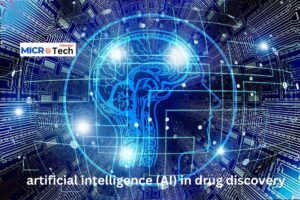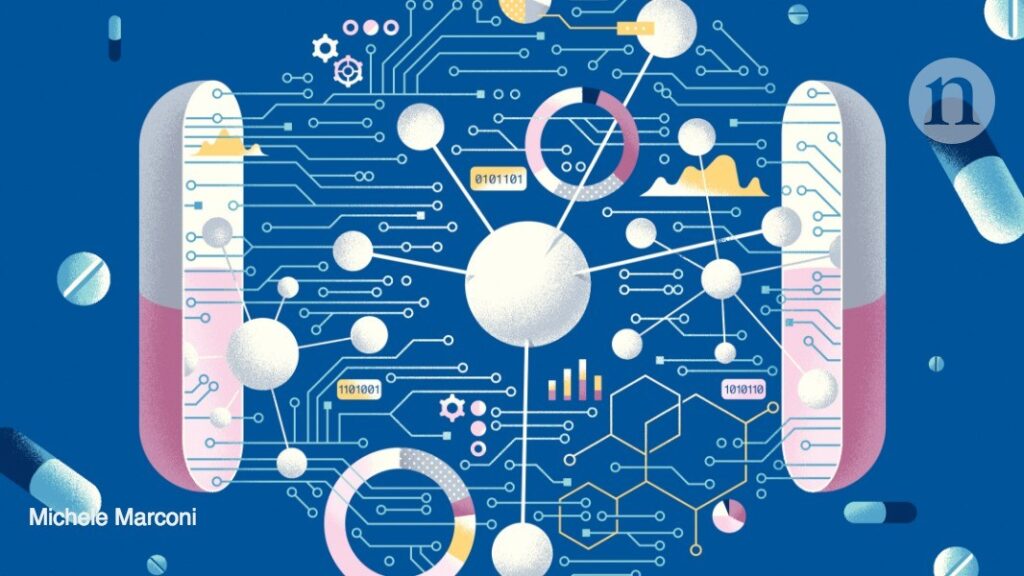How Artificial Intelligence is Revolutionizing Drug Discovery
Index
The Traditional Drug Discovery Process
How AI is Transforming Drug Discovery
Target Identification
Molecular Simulations
Prediction of Drug Properties
De Novo Drug Design
Candidate Drug Prioritization
Synthesis Pathway Generation
Faster Drug Development
More Effective Drugs
Benefits of AI in Drug Discovery
Challenges and Limitations
The Future of AI in Drug Discovery
Step-by-Step Guide: How AI is Used in Drug Discovery
Convincing Readers to Invest in AI for Drug Discovery
Conclusion
Frequently Asked Questions (FAQs)
The Traditional Drug Discovery Process
Before diving into the world of AI, it’s vital to understand the traditional drug discovery process. This system usually involves several stages:
Target Identification
: Figuring out the biological mechanisms of diseases and novel proteins or genes that can be targeted to counteract those diseases.
Lead Discovery
: Screening large libraries of candidate molecules to discover promising “lead” drug compounds.
Lead Optimization
: Improving the properties of lead compounds to make them more effective and safer.
Preclinical Trials
: Testing the drug in the laboratory and on animals to evaluate its safety and efficacy.
Clinical Trials
: Testing the drug on humans in various stages to verify its safety and efficacy.
This process can take 10-15 years and cost billions of dollars, with a high failure rate.

How AI is Transforming Drug Discovery
AI is revolutionizing almost every stage of the drug discovery process. By training on vast datasets, AI algorithms can identify patterns and insights that humans may miss, accelerating the development of new treatments. Here are some key areas where AI is making a big impact:
Target Identification
- AI analyzes large datasets, including omics datasets, phenotypic and expression data, disease associations, patents, publications, clinical trials, and research grants.
- It helps recognize biological mechanisms of diseases and identifies novel proteins or genes to target.
- AI systems like AlphaFold predict 3D structures of targets, speeding up drug design.
Molecular Simulations
- AI reduces the need for physical testing of drug compounds by enabling high-fidelity molecular simulations.
- This approach cuts the high costs of traditional chemistry methods.
Prediction of Drug Properties
- AI predicts key properties such as toxicity, bioactivity, and physicochemical characteristics of molecules.
- This helps bypass unnecessary simulated testing.
De Novo Drug Design
- AI generates new drug molecules from scratch, changing the traditional screening approach.
Candidate Drug Prioritization
- AI ranks promising lead drug compounds and prioritizes them for further assessment.
Synthesis Pathway Generation
- AI creates synthesis pathways for hypothetical drug compounds, making them easier to manufacture.
Faster Drug Development
- AI accelerates the target identification process by leveraging machine learning algorithms.
- AI analyzes clinical literature to find potential drug targets and genetic biomarkers.
- AI predicts binding affinity of molecules, reducing the number of compounds tested experimentally.
More Effective Drugs
- AI enhances lead optimization by predicting pharmacological properties.
- Machine learning builds predictive models estimating properties like solubility, bioavailability, and toxicity.
Benefits of AI in Drug Discovery
- Reduced Costs: AI lowers the cost of drug discovery by reducing testing needs.
- Faster Development: AI speeds up the process of finding potential drug candidates.
- Increased Efficiency: AI processes large datasets faster and more accurately than humans.
- Higher Success Rates: AI predicts toxicity and efficacy, improving trial success rates.
- Novel Drug Design: AI creates new drug compounds tailored for specific treatments.
Challenges and Limitations
- Data Quality and Availability: AI relies on high-quality data, but datasets may be inconsistent.
- Complexity of Biological Systems: AI models may not fully understand biological intricacies.
- Regulatory Hurdles: AI-designed drugs face challenges in regulatory approval.
- Ethical Issues: AI raises concerns about data privacy, bias, and job displacement.

Artificial Intelligence is Revolutionizing Drug Discovery
The Future of AI in Drug Discovery
- Advanced AI Models: AI will continue to improve, capturing biological complexity.
- Multi-Omics Data Integration: Combining genomics, proteomics, metabolomics for better insights.
- Personalized Medicine: AI will help design treatments based on individual genetics.
- Drug Repurposing: AI can identify new uses for existing drugs.
Step-by-Step Guide: How AI is Used in Drug Discovery
- Data Collection: Gather large datasets from genomic, chemical, and clinical data.
- Target Identification: AI algorithms analyze data to find drug targets.
- Drug Design: AI generates new drug molecules with desired properties.
- Virtual Screening: AI screens compound libraries for binding affinity.
- Lead Optimization: AI refines properties of lead compounds.
- Preclinical Testing: AI predicts drug safety and efficacy.
- Clinical Trials: AI optimizes trial design and patient response predictions.
Convincing Readers to Invest in AI for Drug Discovery
Investing in AI for drug discovery is a strategic advantage for pharmaceutical companies. With AI, companies can:
- Accelerate drug development and bring treatments to market faster.
- Reduce costs and improve profitability.
- Increase drug success rates and minimize failures.
- Unlock new treatments and improve patient care.
Conclusion
Artificial Intelligence is rapidly transforming drug discovery, making the process faster, cheaper, and more effective. While challenges exist, the benefits of AI in drug discovery are undeniable. As AI technology advances, it will continue to revolutionize how new medicines are discovered and developed.
Frequently Asked Questions (FAQs)
How does AI speed up drug discovery?
AI algorithms analyze large datasets faster and more accurately, identifying promising drug candidates efficiently.
Can AI design drugs from scratch?
Yes, AI systems generate completely new drug molecules.
What are the main challenges of AI in drug discovery?
Challenges include data quality, biological complexity, regulatory issues, and ethical concerns.
How does AI reduce drug discovery costs?
By accelerating the process, reducing experimental compounds, and improving trial success rates, AI significantly lowers costs.



